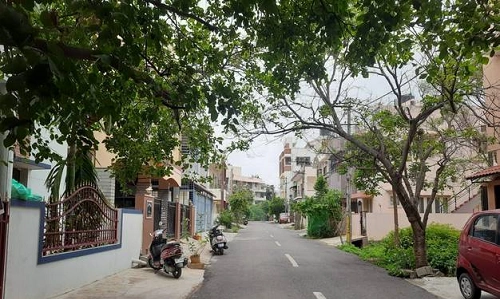India is for sure known as one of the best cousins in the world, and for good reasons. The variety of dishes, the spices, and of course the love of Indians are some of the things that you won’t find anywhere else in the world. These are some of the prime reasons why the food industry is thriving in the country. And if you are thinking of opening a cafe, a fancy restaurant, or just a small stall or a food truck, then you must know about the rules and regulations regarding food businesses in India.
There are a few things that you need to get your hands on before starting out a food business. We are talking about the important licenses that you must have. And guess what? Today’s post is all about just that, so don’t worry too much. We are about to dive deep into the list of the 10 licenses required for food businesses in India. So if you are looking forward to getting into this line of work, you should keep on reading. Here we go.
List of Licenses Required for Food Business

1. FSSAI License
In India, if you’ve got anything to do with food, be it manufacturing, processing, storing, distributing, or selling, you gotta get this license. It’s a rule set by the Food Safety and Standards Authority of India, the big guys responsible for making sure our food is safe and top-notch. The whole point of this license is, well, all about keeping us healthy and making sure the food we’re consuming is safe and high-quality. Not having this license? Big no-no. It’s legally required under the Food Safety and Standards Act of 2006, and you’d better stick to their guidelines to avoid legal headaches. Plus, having this license means your customers will trust you more because they know you’re meeting all those hygiene and quality standards. It’s a badge of honor, really, showing everyone that your food business is legit and safe. What’s more, it’s great for growing your business, attracting partners and collaborations.
2. Eating House License
This legal requirement in India is like a seal of approval that your food business follows all the standards for safety, hygiene, and quality. This license, issued under the Food Safety and Standards Act, of 2006, is all about preventing foodborne illnesses and keeping us, the consumers, healthy. The process? Well, first off, you need to complete an application form and hand over some documents to the powers that be. Remember, different states might have different rules, so be sure to check. Your food establishment must meet certain standards like cleanliness, ventilation, and waste disposal, and be ready for a potential inspection. You’ll also need a food safety management system in place, including proper storage, handling, and preparation of food.
3. Health Trade License
It’s also known as a Food License or Food Business Operator (FBO) License, and you need this license if you’re starting or operating a food business in India. It’s monitored by our friends over at the FSSAI, who keep an eye on the safety and quality of our food. The aim here is all about protecting public health and making sure we’re not selling or consuming substandard food items. This license makes sure food businesses toe the line and keep up with the FSSAI’s standards. The specific requirements and procedures for obtaining a Health Trade License can vary, but generally, you’ll need to submit an application, provide necessary documents, and pay the prescribed fees. And remember, it’s all about keeping our food safe and tasty!
4. Shop Act License
If you’re planning to set up your restaurant or cafe in India, getting your hands on the Shop Act License is a must! This little license covers a whole lot, from regulating the work conditions and employment terms in your business to ensuring your operations are all above board. Think of it like a gold star stamp, confirming that you’re taking care of your team and meeting all legal requirements, like proper working hours, holiday policies, and employment contracts. Since your dream food joint counts as an “establishment,” you’ll need to grab this license before the grand opening. Each state has its own special dance to get the Shop Act License, different forms, rules, and documents. You’ll need all the usual suspects, identity proof, address proof, and so forth. Once you’ve completed the paperwork and it gets the thumbs up, you’re good to go!
5. Trademark Registration
A trademark registration gives you exclusive rights to your brand’s symbol, logo, or even a unique phrase that sets you apart from the crowd. Although it’s not mandatory to kickstart your food business, it’s a pretty smart move. Imagine someone stealing your cool logo or tagline. That’s a no-no! Trademark registration is like your brand’s personal bodyguard, fending off any potential copycats. Registering a trademark boosts your business reputation, spreading the vibe of professionalism and quality to your customers. Plus, it’s like a golden ticket if you plan to spread your wings and take your business to new territories. And why even stop there? You can even license or franchise your trademark, turning your brand into a moneymaker.
6. GST Registration
Next up on the to-do list – GST Registration. That’s the Goods and Services Tax, and it’s a big deal in India. It takes all those complicated indirect taxes, like the service tax and VAT, and rolls them into one. If your food business hits the big time and crosses a certain annual turnover, you’ll need to get on the GST registration ride. Being GST registered shows you’re playing by the tax rules. Plus, it can actually save you money, as you can claim a credit for the GST you’ve paid on purchases. And if you’re eyeing inter-state transactions, don’t skip this step, GST registration is non-negotiable. Not only does it make you look legit, but it also helps keep the tax system transparent by tracking the movement of goods and services.
7. Signage License
Signage, while not technically needing a specific license in India, is still a key piece of the puzzle for your food business. The local municipal bigwigs have a whole bunch of rules about signage, how big it can be, where it can go, what it can look like, and all that. It’s all about keeping the city looking spiffy, safe, and within local laws. But don’t worry too much! Just make sure you get the necessary permits or permissions before you put up that fancy new sign for your business. This usually involves submitting a plan of your signage, paying some fees, and following the guidelines they provide. Just another step on your journey to opening the food business of your dreams!
8. Shop And Establishment License
Does starting a business in India feel like an ultimate adventure to you? Well, then the Shop and Establishment License is one map you definitely need! A legal must-have, this document gives you the thumbs up to operate within a specific Indian state. It’s governed by each state’s unique Shops and Establishments Act, and there’s no escaping it if you’re thinking about starting a food business, be it a fancy restaurant, a cozy cafe, a street-side food stall, or a food delivery service. But the Shop and Establishment License isn’t just a ticket to the entrepreneurial ride. It’s also a way to ensure your business is playing by the rules when it comes to employee rights. This license makes sure that businesses stick to specific rules and regulations about working hours, wages, leave policies, and more.
9. Liquor License
This official document is your golden ticket to serve up alcoholic beverages at your restaurant, bar, hotel, or club. The state governments hold the reins when it comes to regulating and taxing alcohol. So, the process to snag your liquor license can be as diverse as Indian cuisine. The aim of the game here is to keep the sale and consumption of alcohol in check. It helps the government keep an eye on the distribution, pricing, and quality of alcoholic drinks. Plus, it ensures the legal drinking age is adhered to and helps keep illegal activities at bay. But remember, it’s not just about pouring out drinks, it’s a symbol of your compliance with state laws and a commitment to maintaining public safety and health standards.
10. Music License
Music License is like the green light from the appropriate licensing authority allowing you to use copyrighted music in your business. In India, you can thank the Phonographic Performance Limited (PPL) and the Indian Performing Right Society (IPRS) for this. They’re like the musical guardians who make sure music labels, artists, and composers are fairly paid for their craft. If you’re dreaming of serenading your diners with some catchy music, a music license is a must-have. This license makes sure you’re respecting copyright laws and contributing to the income of music creators. Just keep in mind that the tune of music licensing can vary globally.
Conclusion
There you have it. Now we aren’t saying that you need all of these licenses in order to set up your food businesses, but you must need some of the important ones. And the requirement for the licenses also depends upon which type of food business you are opening. That matters too, quite a lot actually. So yeah, pay attention to that as well.
Anantha Nageswaran is the chief editor and writer at TheBusinessBlaze.com. He specialises in business, finance, insurance, loan investment topics. With a strong background in business-finance and a passion for demystifying complex concepts, Anantha brings a unique perspective to his writing.


